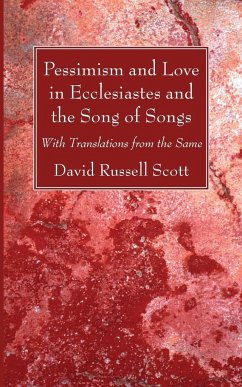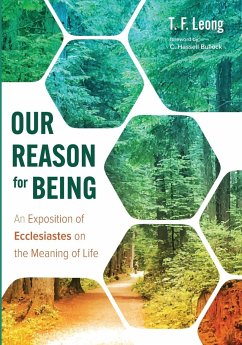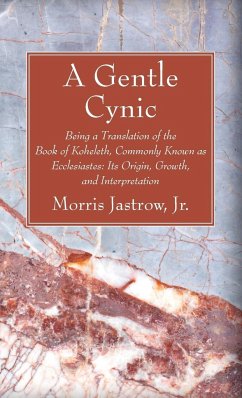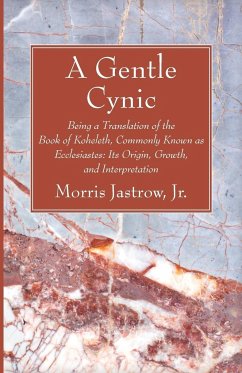Ecclesiastes is the translation in the Greek Bible called the Septuagint of a Hebrew word, Koheleth, whose meaning it is hopeless to fix with accuracy. All that we can say is that the word has something to do with a congregation or and assembly, hence the suggested translations "" a leader of an assembly,"" or ""the assembly itself,"" ""a debater,"" ""a preacher,"" ""a great orator."" Of these translations, ""an assembly"" might seem to fit in best with the nature of the contents of a book which is an assemblage of different conceptions of life and conduct. The final literary editor, whoever he was, of this book no doubt intended it to appear as a whole, and, perhaps, for this purpose, employed considerable editorial craftsmanship; but his labours have created endless difficulties for the later interpreters, who have been driven to desperate straits to reconcile the conflicting and contradictory views which the book, as a whole presents.... From the Introduction








